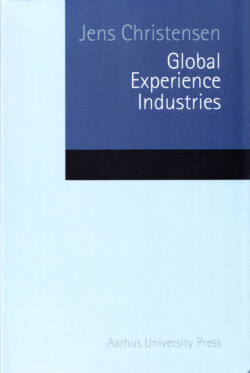Читать книгу Global Experience Industries - Jens Christensen - Страница 35
На сайте Литреса книга снята с продажи.
TUI
ОглавлениеIn 2005 and 2006, TUI (Touristik Union International) was the world’s largest tour operator with travel revenues of $22 billion, two-thirds of total group revenues.58 The company used to be called Preussag and did not engage in tourism until 1998 when it acquired Hapag-Lloyd’s tourism company and started a comprehensive acquisition process of tourism companies while quitting most other fields of business. Under its new name TUI since 2002, it continues to consolidate the tour operator business by acquiring airlines, tour operators, travel agencies, hotels, etc. and establishing national subsidiaries in one European country after another. TUI has been expanding beyond Western Europe into Eastern Europe, North America and Asia. By 2006, TUI comprised about 4000 travel agencies, including incoming agencies, numerous national tour operators, a large fleet of airplanes, several brand hotel chains and other hotels and a few cruise lines. The reduced and changing tourism markets in the early 2000s made TUI carry out a radical reorganization process to reduce costs. They introduced the dynamic package business model to meet the demands of the modern tourist that often required individual vacation modules and discount flights.
Since the early 2000s, TUI has established a leading position in the largest tour operator markets of Germany, UK, France, Benelux and Scandinavia. In 2005, TUI was much larger than number two, Thomas Cook, followed by MyTravel, REWE, First Choice and Kuoni. A new wave of mergers took place in 2007 when Thomas Cook merged with MyTravel and TUI with First Choice, both British tour operators.59 By 2007, TUI and Thomas Cook controlled almost half the European and maybe one-third of the global tour operator market.
FIGURE 12 The TUI Tourism Value Chain
Source: www.tui-group.com.
TUI is a vertically integrated travel company dealing with almost all parts of the tourism value chain (Figure 12). It includes distribution through travel agencies or via its own direct sales channels through the Internet, call centers and travel television. TUI sells package tours and individually booked travel modules and transports travelers to and fro vacation destinations on its own fleet of airplanes with busses connecting airports to property hotels, adapting to peak seasons by way of third party airlines and hotels. Through third-party agreements, TUI provides additional travel services such as car rental and insurance. It is TUI’s strategy to continue its global expansion and determinedly gain all benefits of the Internet by more and more direct sales to consumers. TUI’s main market is Germany that has the largest number of package tour travelers of all nations, followed by UK, Scandinavia and the rest of Western Europe. By way of its merger with First Choice, TUI has extended its British market considerably.
In 2007, the acquired First Choice was the fourth largest European tour operator with revenues of $5 billion.60 Like TUI, First Choice comprises most of the tourist value chain, including package tours, individual travels with airplanes, cruise lines, and even camping and biking tours. First Choice has its own airline fleet, hotels, travel agencies and many subsidiaries. Through third parties, First Choice arranges car rental, insurance and other travel activities. The UK is its main market.
